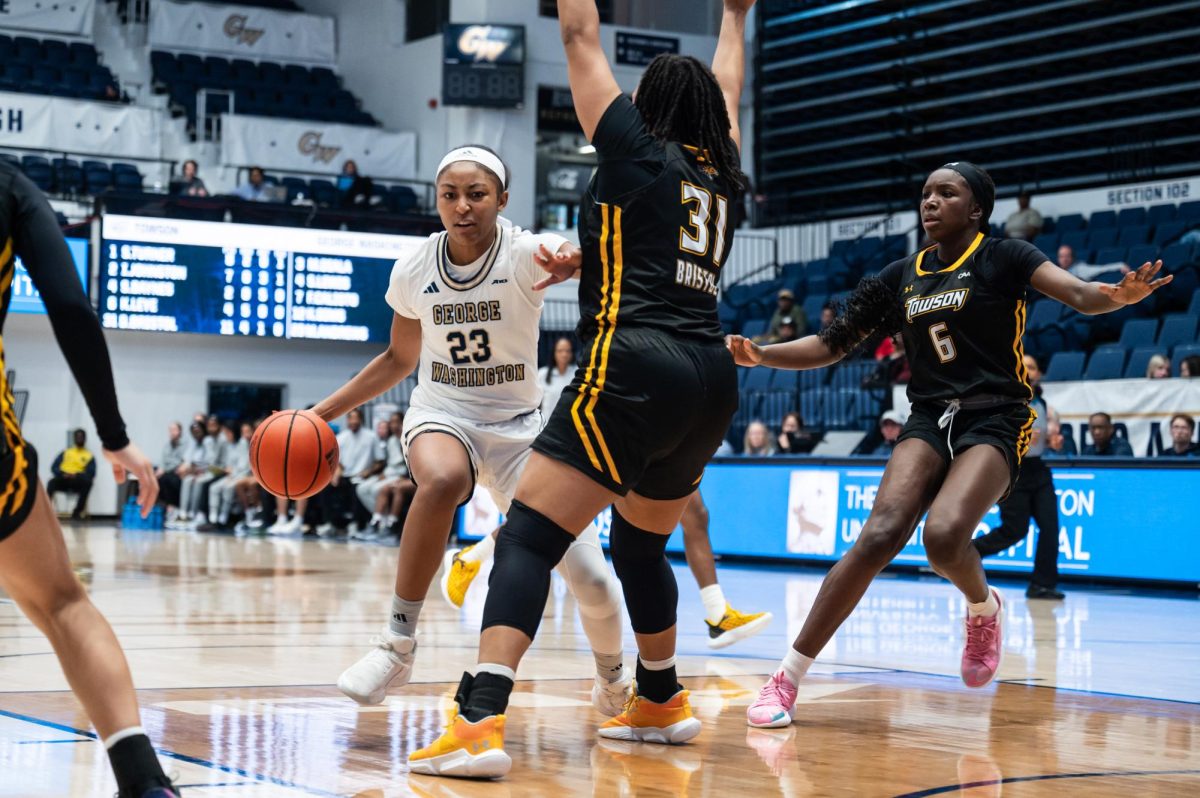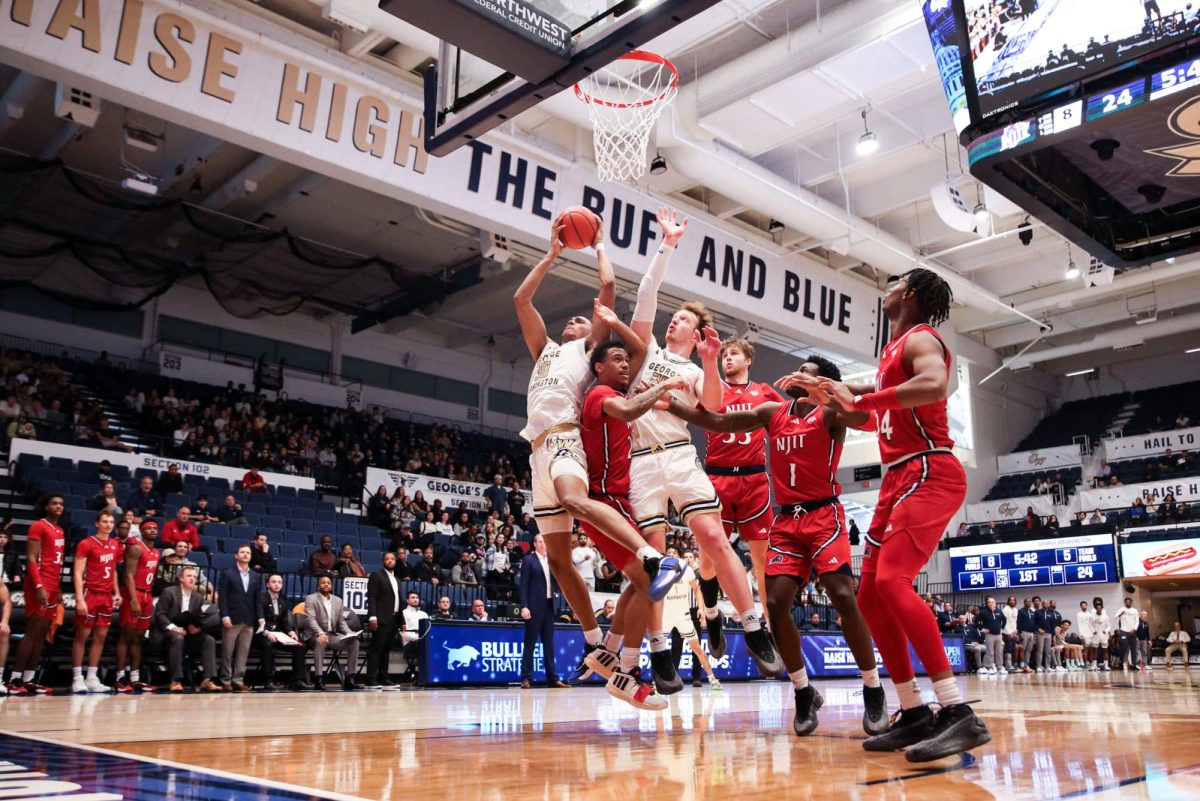Jackie Robinson was not a product of his time.
A decade before the Civil Rights movement, before Martin Luther King Jr. and before Rosa Parks, he broke Major League Baseball’s color barrier. When Robinson made his Brooklyn Dodgers debut on April 15, 1947, the racist structure that plagued baseball for half a century began to crumble.
Almost 60 years later, his legacy lives on at GW. To commemorate “No. 42’s” contributions to society and his ascent in baseball, the University’s Jackie Robinson Society will be hosting a series of events this week.
The 10th annual Jackie Robinson week will kick off with a discussion led by Robinson’s daughter, Sharon Robinson, Monday night at 7:30 p.m. at the academic building at 1957 E Street in Room 213. Other highlights include speaker Wayne Embry, the first African American executive in any major sport, who will appear at the Marvin Center Grand Ballroom Tuesday night at 7:30 p.m.
Professor Richard Zamoff, the founder and teacher of the only tenured class on the baseball Hall of Famer’s impact on society, preaches a simple message: Robinson was far more than a baseball player. His society, which was founded nearly 10 years ago, aims to help students realize he is more than just an athlete.
“GW students know of him,” Zamoff said. “But only as a baseball player. We want to drive home the point that before and after baseball, he was a pivotal civil rights leader.”
Robinson worked tirelessly for civil rights, appearing several times on national television to promote race relations, and working with leaders like Martin Luther King. Just days before he died, he appeared at a Major League game, and instead of simply accepting applause, he made a plea for baseball to start hiring African American managers and executives.
“Sports affect society,” said GW senior Amanda Greenberg, the vice president of the Jackie Robinson Society. “It helps change the climate of the country, and it really can have an effect beyond enjoyment.”
Embry, Greenberg said, epitomizes Robinson’s impact. Without Jackie Robinson’s breakthrough, Embry probably would not have had a crack at an NBA front office job.
After Embry speaks Tuesday night, author Bijan Bayne will discuss the desegregation of the NBA. On Wednesday at 12:30 p.m. at Hillel on 2300 H St., John Chalberg will perform his one-man show “A visit with Branch Rickey,” a look into the general manager who signed Robinson to the Dodgers. The week’s events conclude on Thursday at Hillel at 7:30 p.m., when a panel of academics will discuss personal reflections of Robinson.
“This is for people who are big baseball fans and those who aren’t either,” said senior Ben Fishkind, the president of the Jackie Robinson Society. “This week will help you understand the man’s struggle to break the color barrier.”






